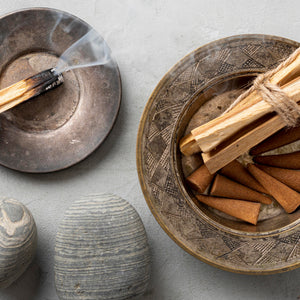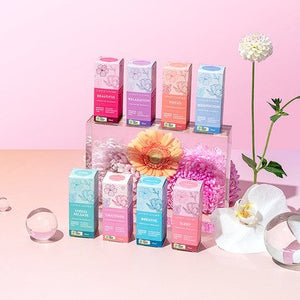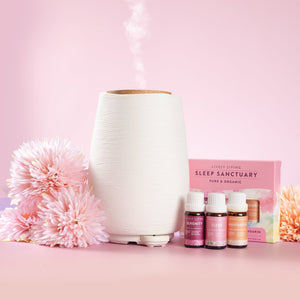10 Effective Ways to Stop a Runny Nose Fast
A runny nose can be disruptive. It’s hard to focus when you’re constantly sniffling, not to mention the sore skin from all the nose-blowing. This post explores at-home remedies and treatment options for chronic runny noses, with 10 effective ways to stop a runny nose fast. Whether it's a cold, hay fever, or dry air, this guide is for you.
Table Of Contents:
- Why is My Nose Running?
- How to Stop a Runny Nose: Home Remedies
- Spice Things Up (Carefully.)
- Rest and Recharge
- When to See a Doctor
- FAQs about how to stop runny nose
- Conclusion
Why is My Nose Running?
Before exploring solutions, let’s understand the cause of a runny nose. A runny nose, medically known as rhinorrhea, occurs when nasal tissues become irritated, leading to nasal mucus. This can be triggered by various factors, including bacterial infections.
Common Cold
A common cause is the common cold, often from rhinoviruses. Colds typically resolve in 7-10 days. If symptoms persist beyond 10 days, it could indicate sinusitis (a sinus infection).
Allergies
Allergies frequently cause sniffles. Exposure to allergens like pollen, pet dander, or dust mites triggers histamine release. This causes inflammation, increased mucus production, and often a runny nose, sneezing, and watery eyes.
Managing allergens, like using air purifiers and good hygiene, is crucial. Allergy drops can be effective but may take time to reach peak performance.
Other Irritants
Dry air, smoke, or spicy food can trigger a runny nose. Temperature changes also irritate nasal passages. Nasal polyps are another possible irritant.

How to Stop a Runny Nose: Home Remedies
Try these home remedies for a dripping nose. Contact a doctor if issues persist.
Hydration is Key
Drinking plenty of fluids is crucial for a runny nose. Fluids thin mucus, aiding drainage. Choose water, clear broths, and herbal teas. Warm beverages can soothe and improve common cold symptoms.
Steam It Up
Inhaling warm steam helps. A hot shower, steam from a bowl of hot water, or a humidifier loosens congestion. The moisture thins the mucus, easing breathing.
Saline Nasal Spray or Rinse
Saline nasal sprays or rinses, like a neti pot, or nasal aspirator can clear nasal passages. They flush out mucus and irritants. Saline spray can even improve sleep during upper respiratory infections.
Warm Compress
Applying a warm compress to your forehead and sinuses can comfort and reduce inflammation.
Diffuse Essential Oils
Diffusing Lively Livign Essential Oils like Organic Breathe, Seasfonal Relief or Winter Rescue Remedy is a natural way to provide fast effective relief. Add a few drops of these qualituy essential oils to your diffuser, allowing you to enhale the essentail oils into the limbic system for healing to occur.

Over-the-Counter Meds
Several OTC medicines are available for symptom relief. They include:
- Decongestants: These constrict blood vessels, reducing mucus and relieving nasal stuffiness. Limit use to avoid rebound congestion.
- Antihistamines: Ideal for allergy-related runny noses, antihistamines block histamine, easing inflammation and mucus flow. They're great for treating allergy symptoms, too.
- Pain relievers: Acetaminophen or ibuprofen reduce discomfort from congestion and inflammation.
Spice Things Up (Carefully.)
Spicy foods with capsaicin (like chili peppers) might offer temporary runny nose relief. The heat initially increases nasal discharge, followed by a clearer feeling. Eating spicy foods with care can sometimes remove mucus, especially the thin mucus.
Capsaicin nasal spray might treat non-allergic rhinitis, but use caution, especially with irritated skin. Moderation is key.
Rest and Recharge
Rest helps ease cold symptoms like a runny nose. Adequate rest supports immune function, helping fight off infections that can lead to otitis media or an infection in your middle ear. Consider eating spicy foods, such as chili peppers, to see if they can clear up the nasal congestion associated with runny nose.
When to See a Doctor
A runny nose is usually minor, but some cases need medical attention. Consult a doctor if you experience severe headaches, facial pain, high fever, or a runny nose lasting over 10 days.
One-sided discharge or bloody mucus also warrants professional advice. These symptoms can result from bacterial infections.
FAQs about how to stop runny nose
How to immediately stop a runny nose?
Immediately stopping a runny nose is often difficult. Gently blowing your nose clears mucus temporarily. Antihistamines might offer quicker relief for allergy-induced runny noses.
What dries up a runny nose the best?
Treating the root cause offers the best long-term solution. Antihistamines help with allergies. For colds or the flu, letting the illness run its course while managing symptoms with saline rinses or humidifiers is advisable.
How do you stop a runny nose trick?
Some find relief from eating spicy food or applying facial pressure. However, there's little scientific evidence for such 'tricks.' Stick to reliable healthcare resources for information.
Why is my nose running like water?
A watery runny nose can indicate various causes, such as allergies, cold weather, eating spicy foods, or viral infections. Note that thicker mucus develops with infections as time goes on.
Conclusion
A runny nose can be mildly irritating to very disruptive. Many solutions exist, from home remedies like warm compresses and saline nasal sprays to OTC medications.
If your runny nose persists, or you experience severe headaches, fever, facial pain, one-sided discharge, or bloody mucus, seek medical advice.
A healthcare provider can determine the cause, such as allergies, viral infections, nasal polyps, or other medical conditions, and advise you on how to stop runny nose issues effectively. Remember that persistent symptoms could also point to underlying causes such as bacterial infections. Consulting a medical professional can give you an accurate diagnosis and the best treatment plan to alleviate your discomfort.





















